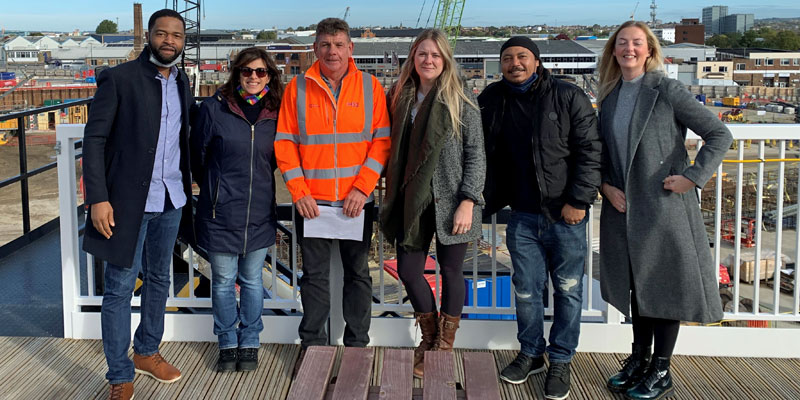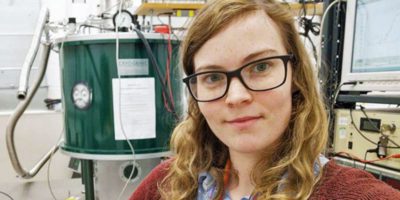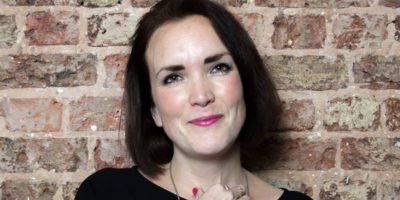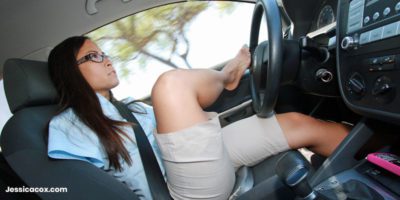Maria Grazia Zedda is an equality diversity and inclusion senior manager (workforce) at High Speed Two (HS2), having had an extensive career working with disabled people. Maria considers herself disabled as per the social model of disability due to her severe hearing loss. She advises on strategic planning and delivering equality, diversity and inclusion goals, developing internal and external partnerships, training frontline staff, senior managers, and executives.
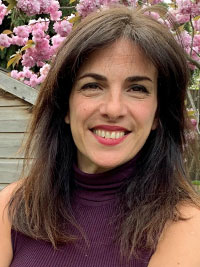
“One of the things that I’m really keen on is that people don’t think of disability as a bad word. I wear my disability badge with pride!”
Finding my passion working with disabled people
I started out as a trainee at the BBC. I was part of a training programme that looked at recruiting disabled people into the industry. However, I realised that my career wasn’t going very far without a degree. Therefore, I left the BBC, much to my family’s dismay, to join a university course in sociology at Goldsmiths, University of London.
As a result, I fell in love, not just with telling disabled people’s stories, but actually working with disabled people. So, my whole career was around disability and inclusion. I have worked in the UK, in Italy, and in the United States.
When I was in the US, I faced a massive barrier because I found myself pregnant and unable to contribute, as there’s no maternity leave there so I thought to myself: “I am a mom, I’m deaf, no one’s going to give me a job.” So, I decided to set up my own consultancy business, Wideaware. As a result, I worked in consultancy for 10 years.
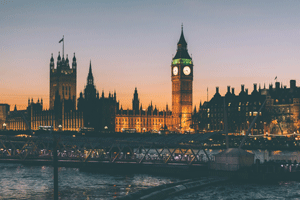
Since then, I closed my consultancy business, and I worked as an equality diversity and inclusion (EDI) consultant.
For a while, I worked for the LTA (the Lawn Tennis Association) as their diversity and inclusion advisor, and then the opportunity came up to join High Speed Two (HS2). I started out as an interim EDI manager. Now, I’ve been permanent for the last three and a half years.
Inclusion programmes at HS2
Today, my role is so varied, I get to do so many different things. I am really privileged to have this fantastic role where I’m looking after many inclusion programmes that ensure that disabled people feel like they belong.
I am the main leader for a programme called Clear Assured, an accreditation programme for equality, diversity, and inclusion. HS2 is the first organisation to have achieved the platinum status out of 500 Global national organisations, which we’re very proud of. It’s really the apex of best practice in equality, diversity, and inclusion.
I look at other programmes where we really make sure that we include people and give them a great place to work. The programmes can be specific interventions, like skills auditioning for example, making sure that we implement strategic actions to support greater diversity of our people.
The more senior you get in an organisation the less diversity there is at the top, usually, and so we have more specific interventions to make sure that we offer career progressions and opportunities to everybody.
I also help look after our employee networks. We have a number of them, all of them are fantastic. Some examples are 2Gether, our disability network, Onboard, our LGBTQ+ network, our Reach Network, which is all about ethnic minorities, and, of course, our Gender Balance Network.
I think that looking after the networks is a real privilege because they are the ones that actually make the culture of inclusion come alive. People feel like they have somewhere to go to if they encounter a barrier in the workplace, they have people that they can talk to, so, this is what makes a difference.
Rather than diversity of thought, it’s inclusion that improves performance
I believe diversity of thought is not as important as inclusion. Diversity is a matter of fact, it’s what we are, what we do, but actual inclusion is what makes a difference.
It makes a difference because when people feel included and safe, then they’re able to do their best work. Diversity per se doesn’t really matter; what really matters is a sense of belonging.
This is what HS2 tries to foster, and actually it’s the one thing that I think sets us apart from other organisations in the industry, especially in engineering and construction. They’re often not very diverse. I do think that that sense of belonging is what sets us apart and makes us a good and attractive employer.
Choosing the right language when talking about disability
I think it’s very important to call a spade a spade when talking about disability. I don’t think it’s a good idea to have euphemisms that can sometimes feel a little bit patronising.
One of the things that I’m really keen on is that people don’t think of disability as a bad word. I wear my disability badge with pride! This is simply about understanding that there’s nothing wrong with you and what you’re experiencing is the impact of barriers in a world that is not usually designed for you.
That gives you ownership of the actions that you need in order to overcome that barrier. Language is very important.
Just ask

I have literally been asked in a job interview “How deaf are you?,” which is a really strange question. A much more useful question is: “What barriers have you experienced in the workplace, and what can we do to address those barriers?” You’re emphasising the person’s ability to do something about those barriers rather than looking inwards.
From disability disclosure to disability sharing
One of the things we are trying to do at HS2 is to try capturing our disability data in different ways. Normally, this is called ‘disability disclosure’, almost as if it’s a dirty secret. So we try to change the language there and talk about ‘disability sharing’ or ‘self-identifying’. I’m really keen that we promote a factual kind of language.
The way that we collect the data on disability is not so much about asking that direct question, but we measure the adjustments that we make for people and so that captures the true impact of disability barriers in the workplace.
What we pride ourselves on is actually capturing the number of adjustments that we make for disabled people. Whether is physical disabilities, or around our mental well-being. And that’s really important. We actually make adjustments for around 35% of our people, which is in an organisation of about 2000 people is not bad.
Not far away from reporting gaps for disability and ethnicity
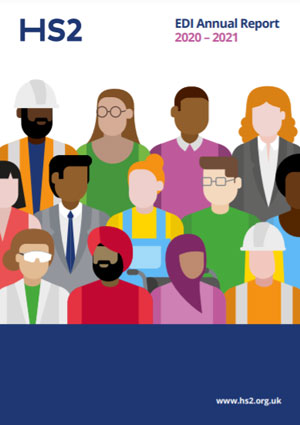
By actually taking responsibility for ourselves and closely examining the pay gaps, not just for women but also for ethnic minorities and disability, I think we are pushing further because we’re saying: “This is what is happening; now we need to address it.”
And with HS2, we have an opportunity to influence the supply chain, which obviously makes a difference. We currently have over 20,000 people working for us, either directly or indirectly, and that figure will increase to around 34,000, so by examining the pay gaps, we are influencing change on a massive scale. It’s really important to acknowledge the pay gaps because if we work towards addressing them, then our supply chain will be encouraged do the same. That’s the idea.
How we are celebrating the International Day of Disabled Persons
To mark this International Day of Disabled Persons, we will be launching our brand-new Accessibility Strategy.
We will have an Accessibility Policy, a Strategy and Accessibility hub, where people will be able to go and actually understand everything that we do to include disabled people and to refer people to well-being support. Everything will be under one roof.
We will mark this with a launch event with our CEO and members of our senior leadership team. That is really important because it really shows how accessibility and inclusion for disabled people are something that is supported and embraced from the top as well as from the bottom up.
This is a real joint effort of all our teams that have come together, whether it is innovation or our recruiting team. Everybody is working together to launch this approach around accessibility and inclusion and I’m really proud of it. I’m hoping it will be an amazing event that we’ll get to celebrate year after year going forward because it’s not been done before.
Employing more women
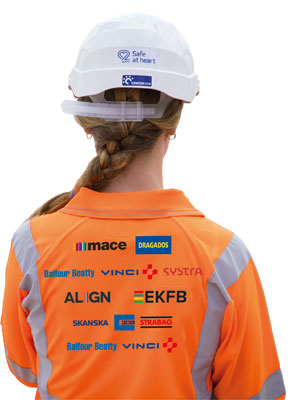
We’re passionate about employing more women and it’s phenomenal when you compare your perception of how a construction site might be against to the work our teams are doing to drive change.
Other programmes that are important for us
We have a whole programme around addressing modern slavery, which is something can affect men, women and children of any age and nationality. Often people assume non-British people are trafficked but slavery affects UK nationals too. The programme promotes fairness through our worksite and makes sure that people are looked after, that people are safe.
That is something that often people don’t think about but it’s really important. This and other inclusion and safeguarding programmes give you a sense of pride, of belonging, and also promote a safe environment for everyone so that nobody is exploited. If you see something, you can report it safely confident that it will be followed up. That’s really important too because it gives people an opportunity to report a concern anonymously. Modern slavery is huge problem that is often underestimated, and at HS2 we are determined to do something about it. I think this speaks volumes about the type of employer that we are.
Writing my own novel
On a personal level, I have a novel that’s coming out. I’m looking forward to the new year to see what happens to that. It will be published first in Italy, but hopefully, there will be an English version if it does well in Italy.
The book will tell my story of coming into the UK as a young woman, an immigrant, and facing many barriers and understanding them, both on a personal level and in the workplace.
It explains the events where I encountered discrimination and different treatment from other people, but also celebrating a pre-Brexit world where I felt included, and the UK became my home. I really want to celebrate that. So, for me, it’s a great way to pay tribute to the UK that is inclusive.
When I was growing up, I was told that as I was deaf that the best I could hope for was to work as a cleaner, so when I was 19-years-old I left home slamming the door because I just rebelled against all the low expectations. So, the purpose of me telling that story in the novel is all about not wanting another young woman to think that they have to leave home in order to make it. I hope that my story will tell them that they can believe in themselves.
https://www.linkedin.com/in/mariagraziazedda/
https://www.hs2.org.uk/about-us/our-governance/equality-and-diversity/
https://www.instagram.com/hs2ltd/

